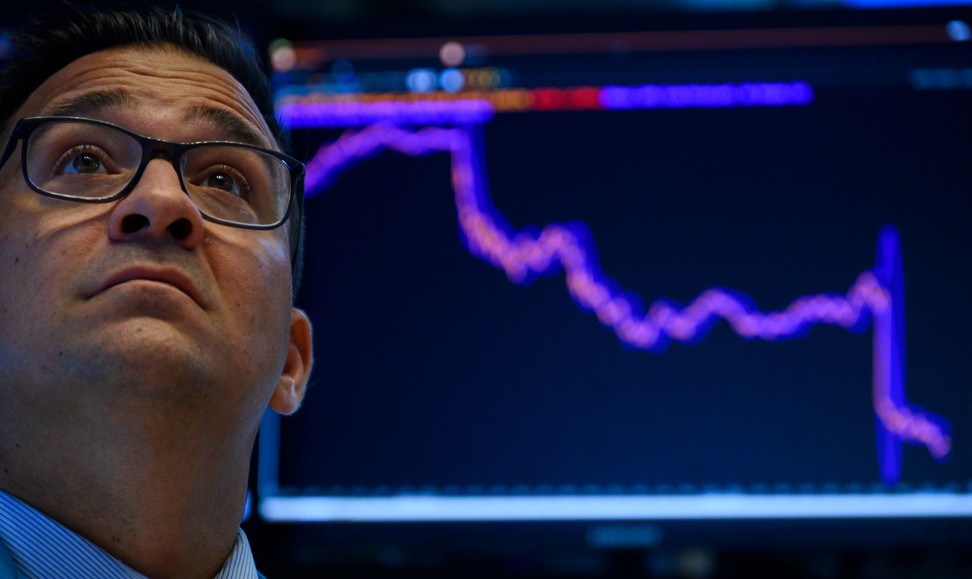China could depreciate yuan further if trade war escalates, IMF says, rebuking currency manipulator charge
- International Monetary Fund says the recent Chinese yuan weakening, which sparked currency war concerns, is in line with market ‘fundamentals’
- IMF shuns thorny question over whether China is a ‘currency manipulator’ as alleged by US President Donald Trump in annual review

The International Monetary Fund on Thursday found no fault with the recent weakening of the Chinese yuan, recommending that Beijing allow the currency to fall further if the trade war escalates, despite Washington branding China a “currency manipulator”.
The yuan, also known as renminbi, fell below a key level of seven to the US dollar earlier this month, leading the United States to allege that China is deliberately weakening the currency to gain trade advantages. China strongly hit back at the allegations, arguing that the yuan’s depreciation was a market move.
Zhang Longmei, deputy resident representative for the International Monetary Fund (IMF) in China, said at a briefing in Beijing that the yuan’s value “is assessed to be in line with fundamentals”, reiterating a conclusion made by the fund during its annual evaluation of the Chinese economy in July.
In making its assessment, the IMF examined the current accounts, foreign exchange reserves and exchange rate regimes of 30 economies, including the US and China, and published an annual report.
The yuan’s value has become a new battlefield between the world’s two largest economies, with US Treasury Steven Mnuchin telling Bloomberg News on Wednesday that he has contacted China’s central bank and the IMF over the issue. The Chinese currency weakened for 11 days straight against the US dollar to Thursday, the most prolonged slump on record.
At Thursday’s briefing, the IMF did not directly refer to the US’ decision to brand China a currency manipulator – a long-term accusation of US President Donald Trump – but said that China must increase “exchange rate flexibility” to deal with rising trade tensions and the uncertainty that brings.
Should the trade war escalate further, for example if all Chinese goods are subjected to a 25 per cent tariff rate, currency depreciation could be a policy tool for Beijing, said Alfred Schipke, IMF senior resident representative to China, at the same event.
“If there is a shock, the exchange rate ought to be part of the adjustment and should be allowed to depreciate. That is what exchange rates are for,” Schipke said, adding that the exchange rate should be decided by market forces. “In principle let the market decide,” he said.

The central bank could intervene again if the depreciation causes people to lose confidence and leads to disorderly capital outflows. “In extreme cases, the Chinese authority can temporarily use capital flow measures to deal with that,” he said.
The yuan has dropped about 4 per cent against the US dollar so far this month. The yuan-dollar midpoint rate was set lower by the People’s Bank of China at 7.0858 on Thursday, while onshore trading closed at 7.1490.
Julian Evans-Pritchard, senior China economist at Capital Economics, said the weaker yuan, which has depreciated 5 per cent in trade-weighted terms since June 2018, has helped offset the impact of US tariffs.
“This has encouraged exporters to lower their US dollar export prices by 2 per cent, boosting the competitiveness of all Chinese exports to the US, not just those affected by tariffs, all exports to the rest of the world,” he wrote in a research note.